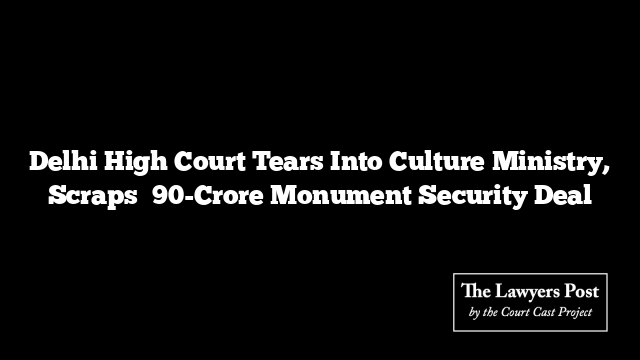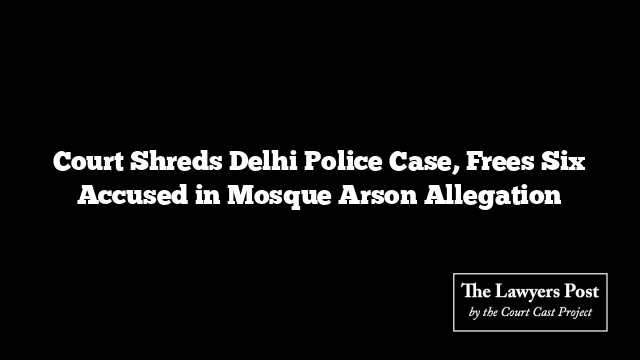The Delhi High Court has delivered a stinging rebuke to the Culture Ministry and the Archaeological Survey of India (ASI), striking down a ₹90-crore contract after finding the tender process for monument security riddled with opacity and arbitrary exclusions.
A Bench led by Chief Justice Devendra Kumar Upadhyaya with Justice Anish Dayal dismantled the evaluation process, calling it vague, unreasoned, and unfair to qualified bidders. The judges noted that 75 of 76 applicants were shown the door in a single sweep, leaving one contender, SIS Limited, standing.
The case was sparked by CISS Services, a national security agency with a strong track record, which found itself disqualified despite producing proof of a massive ₹182-crore contract with the State Bank of India. Between 2018 and 2022, the company deployed more than 2,200 unarmed guards across ATMs in Madhya Pradesh and Chhattisgarh — a contract SBI itself certified as “excellent” in execution.
But ASI brushed it aside, insisting that guarding monuments required a different set of skills than securing bank ATMs, dismissing CISS’s work as mere “caretaker services.” The High Court wasn’t convinced. “A reasonable person would recognize both as fundamentally the same service — deployment of unarmed security guards. Changing the label does not change the nature of the work,” the Bench observed.
The judges further slammed the Technical Evaluation Committee’s cryptic one-line rejection of CISS’s bid, saying such opacity left bidders clueless about why they were disqualified. Instead of clarifying ambiguities, the Ministry had cleared the field for a single player.
“Having satisfied the turnover requirement and holding the necessary PSARA license, disqualification based on a wordplay over ‘caretaker’ versus ‘security’ is indefensible,” the Court declared, adding that the process “smacks of arbitrariness.”
As a result, the March 27 award letters handed to SIS Ltd. have been quashed. The Ministry now has three months to restart the process with fresh tenders. To avoid disruptions, SIS has been allowed to continue guarding monuments until new contracts are finalized.
The ruling signals a strong reminder from the judiciary that government tenders must be guided by fairness and transparency, not technical nitpicking that wipes out competition.





